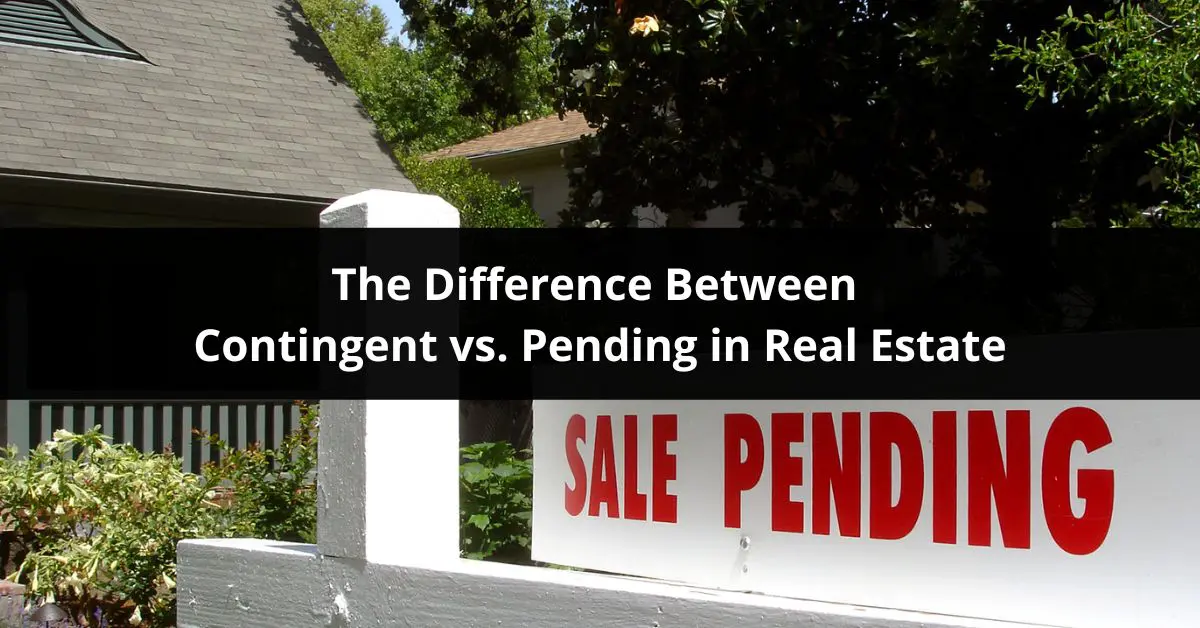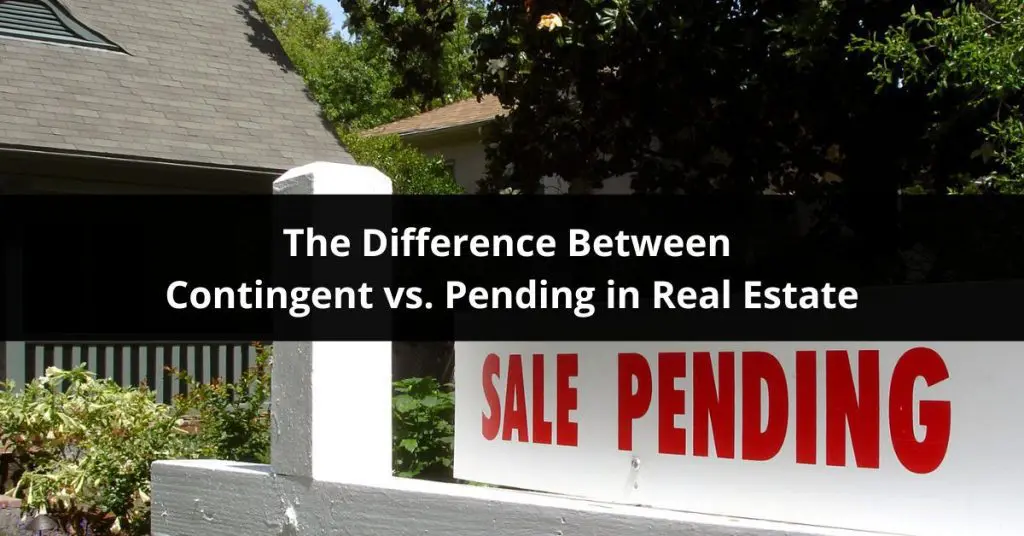Contingent and Pending are both statuses you’ll see on a home listing when an offer has been made, but they mean different things legally.
Pending means a contract is made and the buyer can’t back out, whereas Contingent means the seller must meet certain requirements for the sale to be finalized. These contingencies can include passing inspection or having a home loan secured.
Contingent properties might fail to close so you can accept backup offers, but Pending homes are almost guaranteed to close and you may not accept backup offers.
Here are the key differences with Contingent vs. Pending properties:
| Contingent | Pending | |
| % Home sales with status | 80% | 100% |
| Are Contingencies in place | Yes | No |
| Can you leave contract | Yes | No |
| Can you take backup offers | Yes | No |
| Chance of contract failing | Low | Very Low |
| Time to close | 30-60 Days | 3-4 Days |
| Under contract | Yes | Yes |
Let’s take a closer look at each of these differences.
Contingencies
Don’t think of contingencies as an obstacle to home closing, because they are designed to keep both parties from getting a bad deal. Here’s how common contingencies can keep you safe:
- The buyer can get a home inspection to make sure the property doesn’t need massive repairs.
- The buyer may have a title search done to make sure there are no liens on the property.
- The buyer can only buy the seller’s property once they’ve sold their current home.
- The seller can reject the deal if the buyer fails to sell their home quick enough.
When these contingencies are completed, they are considered ‘satisfied.’ Satisfied deals can then move to pending status.
But what happens when a buyer or seller decides to back out of a contingent or pending agreement?
Leaving Pending or Contingent Contracts
Leaving the deal may lead to legal repercussions for both the buyer and for the seller. As a seller you open yourself up to a lawsuit from the buyer, and as a buyer you forfeit your earnest money deposit to the seller. But the biggest difference are the legalities of leaving the contract with pending vs contingent status.
Pending properties offer no way to leave the contract, while Contingent properties do through contingencies. One example is if an inspection report turns up major damages and your buyer no longer wants to negotiate or buy the home. The buyer may use the contingency to leave the deal which will help protect them if the status is contingent. If this happens, and you’re the seller, you can accept backup offers and accept one of them to protect yourself. That’s another difference with pending vs contingent status in real estate.
Backup offers can still be accepted while a home is under contract. But there is a catch. If your current deal falls through, you must accept backup offers before others. This becomes a pain point if the market begins to climb and sale prices are rising. You can also continue to accept backup offers until the property moves into pending status. Once the offer and contingencies have been met, it’s time to go to the closing table. The last difference between pending and contingent status in real estate is the time to close.
Contingent properties take 30-60 days to close on average depending on the contingencies and how long they take to clear, while Pending properties can take 3-4 days to close since both the buyer and seller have agreed on the details.
Now you know the similarities and differences between Contingent vs Pending properties in real estate. And if you’re stuck in contingency limbo and need to sell your house fast, you can always give us a call at and get a hassle-free cash offer.



